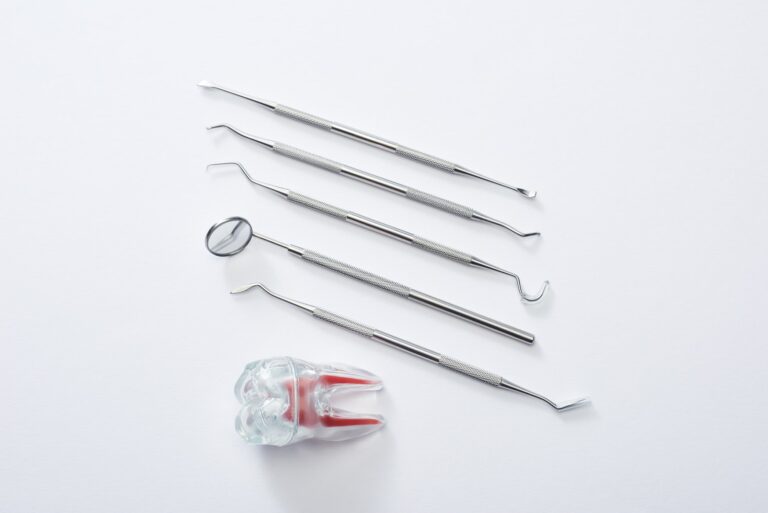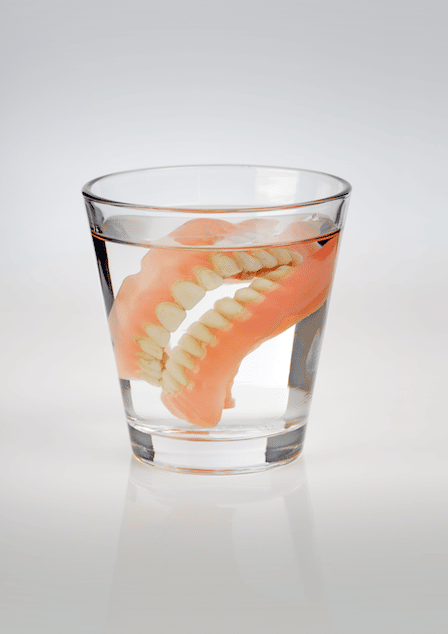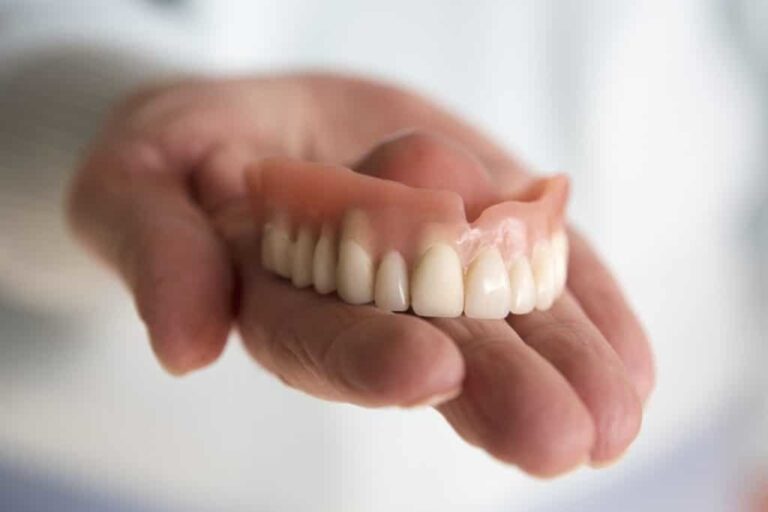Dentures are an excellent option to replace a missing tooth, or teeth. If you’re considering them, you may be wondering about how to clean dentures.
Below you’ll find a number of tips on how to keep your dentures clean. And keep your mouth healthy.
Do You Need To Clean Your Dentures?
Cleaning dentures does not have to be a complicated, time-consuming task. But it does need to be done.
It is similar to cleaning your regular teeth in many ways. However, there are some important differences to be aware of.
The most important thing to remember is that you need to treat your dentures as well as you treat your natural teeth. You’ll want to clean them often, and keep them as clean as possible.
Clean teeth and dentures means a healthy oral hygiene. This can prevent you from losing any more teeth, getting bacterial infections, and inflamed gums.
How To Clean Dentures
To clean your dentures, you need to wash and treat them thoroughly. We recommend doing this at least once a day, or after every meal, if possible. Here are some more tips to help you clean your dentures:
- Remove your dentures after eating and rinse them. The least you can do to keep your dentures clean is by rinsing them after every meal. You’ll want to rinse them under running water. This will help remove any food particles.
- Brush and rinse your mouth before putting your dentures back in.
- Use a soft-bristled toothbrush when brushing your natural teeth.
- Make sure to clean your tongue, cheeks and your palate as well.
- Be careful when handling your dentures. You do not want them to bend or get damaged during cleaning.
- Use a soft-bristled toothbrush to brush your dentures daily. You can also use a non-abrasive denture cleanser. If you are using any adhesives for your dentures, you need to brush off any residue.
- Soak your dentures before going to sleep, and leave them overnight. Yes, you should remove your dentures right before you go to sleep. Soaking them in water overnight helps keep them moist. The moisture also helps the dentures to retain their shape. You can use water or a mild solution for dentures.
- If you are using a solution to soak your dentures in, make sure to rinse your dentures thoroughly before you use them again. These solutions can contain chemicals that may cause side-effects like pain, burns in the mouth, and even vomiting.
- Don’t forget to visit your dentist regularly. Your dentist will usually be the one to decide how often you should have checkups. And if you have dentures, they need to be maintained in order to ensure they fit properly, and to avoid discomfort.
- If you feel any discomfort, or if you feel like your dentures are getting loose, see a dentist immediately. Loose dentures can cause irritation and infection.
- Avoid using whitening toothpastes as much as possible. While it works on your natural teeth, the color of your dentures won’t whiten.
- Avoid using abrasive cleaning materials, harsh toothpaste products, and strong cleansers. These can contain materials and chemicals that can damage your dentures.
- Avoid products that contain bleach. Bleach can make your dentures brittle, and it can cause damage to the materials.
- Dentures with metal attachments should not be soaked in solutions that contain chlorine. Chlorine is one of those chemicals that may corrode your dentures’ metals and tarnish them.
- Avoid putting your dentures in hot water to prevent them from losing their shape.







